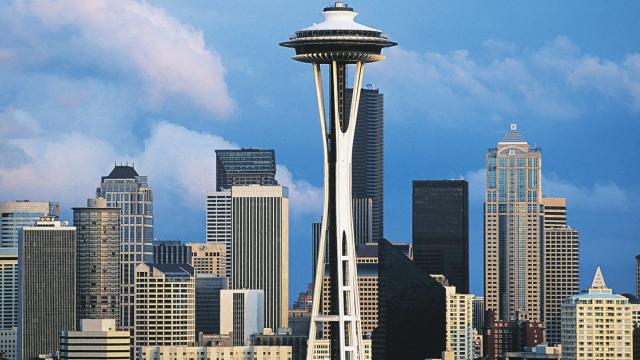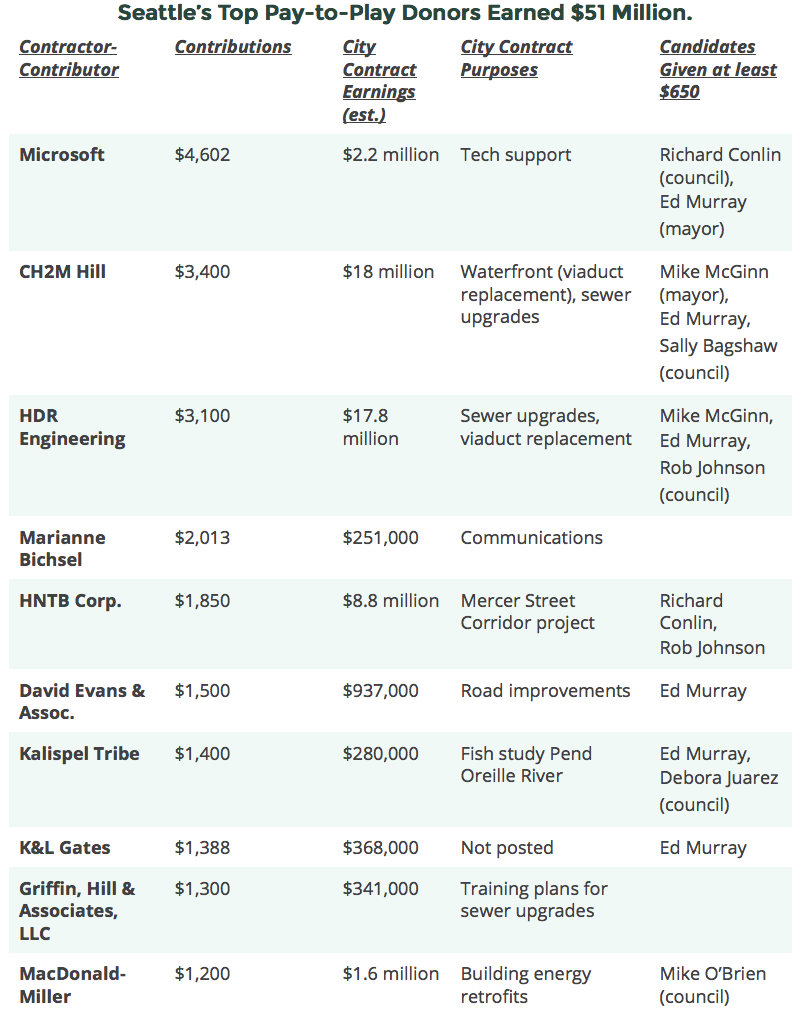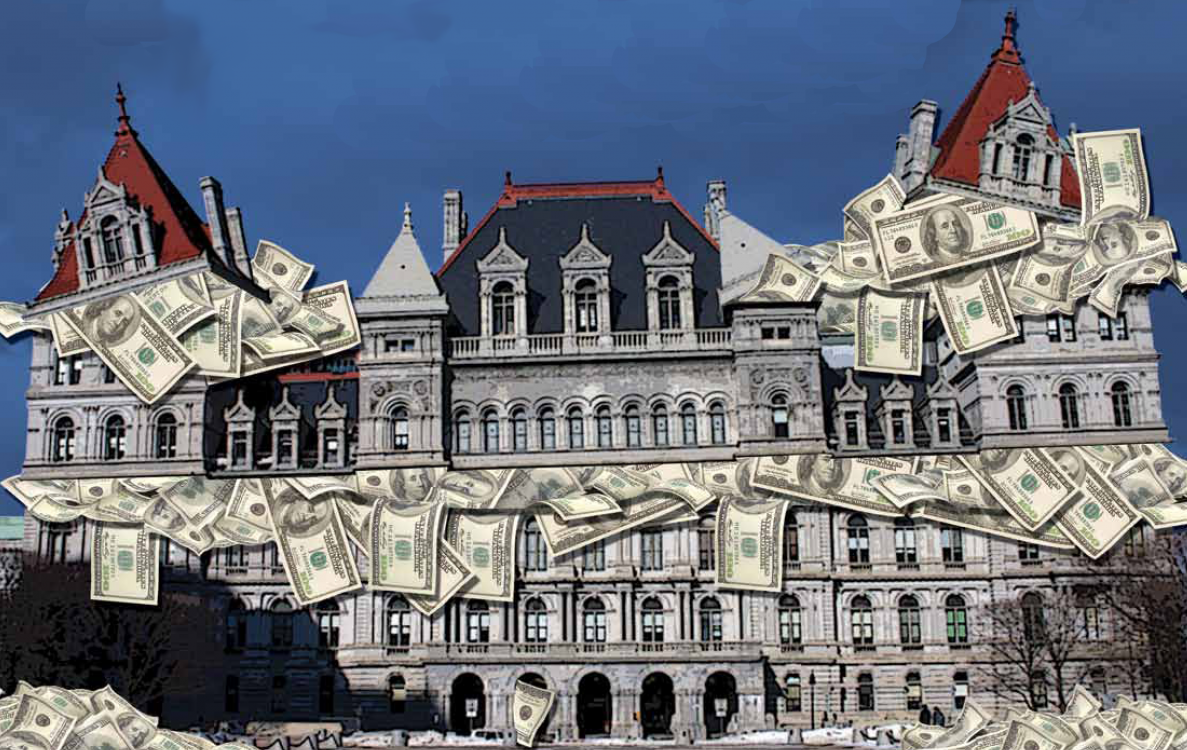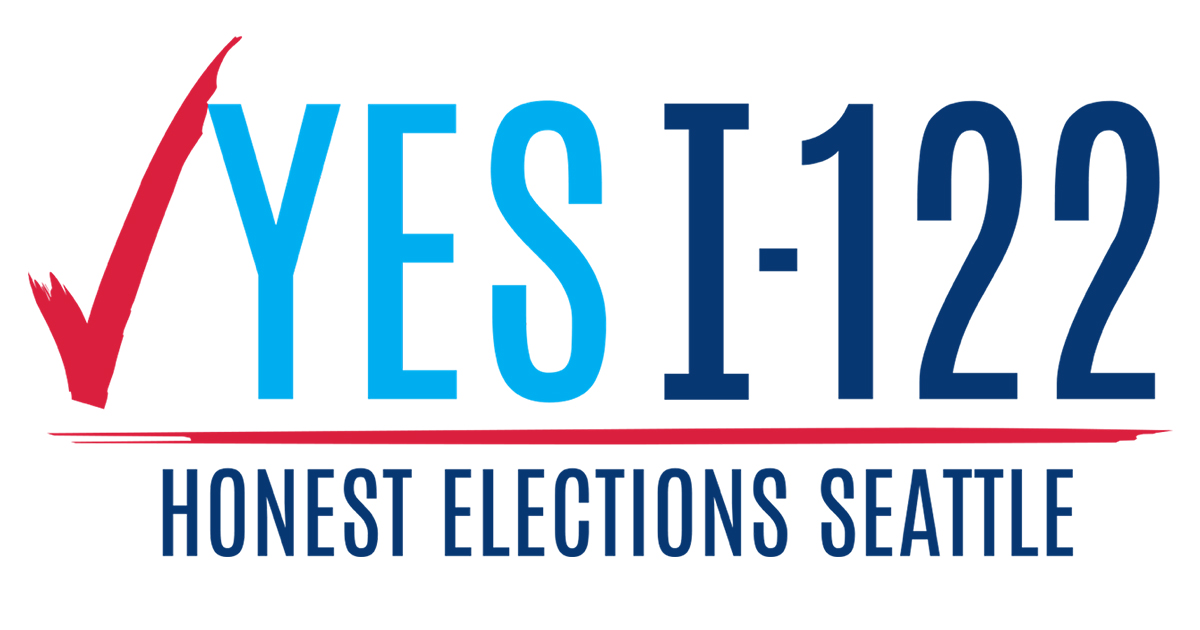
By the end of the day today, Seattle may be the first major city to have publicly-funded elections.
Should Seattle residents vote to pass the Honest Elections Seattle initiative, also known as I-122, big money in politics may just meet its match. The initiative would effectively allow citizens to spend up to $100 in a given election with "democracy vouchers," paid for by an additional $8 property tax on homes worth $400,000 or more.
The initiative would also ban contractors who do more than a quarter-million dollars a year in city contracts from contributing to political campaigns, along with instituting a ban on campaign donations from firms that spend more than $5,000 a year lobbying the city government.
While it's well known that corporate special interests have a disproportionate amount of influence in presidential and congressional elections, these same corporations also use their bottomless coffers to sway local and municipal election outcomes. According to research from the Seattle-based nonprofit Sightline Institute, "pay-for-play" politics has thrived here at city hall.
Recent Sightline research points out that in 2013, the last time Seattle had municipal elections, several corporations arguably won special favors from Seattle with the help of political campaign donations.
Ridesharing company Lyft donated $2,600 to mayoral and city council candidates, and spent $15,000 lobbying city hall for favorable taxi regulations, which it later won.
Likewise, real estate developer Clise Properties donated $2,800 to municipal candidates and spent $48,000 on lobbying city hall in 2013 for an energy project. Since making those donations, Clise has won city approval on several development projects.
In 2013, Ed Murray's mayoral campaign asked for and received the maximum allowed donation ($700) from Microsoft. After Murray won the election, Microsoft was awarded a $46,000 contract to provide tech support to Mayor-Elect Murray's transition team.
In the 2013 and 2015 election cycles, Microsoft donated a combined $4,600 to local political campaigns – and between January 2013 and summer of 2015, Microsoft was awarded over $2.2 million in city contracts.
Sightline discovered that of the top 22 corporations that donated $28,000 to local political campaigns between January 2013 and June 2015, those 22 companies have since been awarded $84 million in city contracts.
"I don't think there's anyone today who isn't aware of the problem of big money influencing our political system," said Alan Durning, executive director of Sightline Institute. "Virtually everyone here is for I-122, except for our rather conservative daily newspaper and the big corporate donors in our city."
Durning is referring to the Seattle Times, which ran an editorial disparaging the campaign in September saying voters should reject the initiative due to I-122's funding model. The Times argued that issuing $100 in democracy vouchers to the city's 410,000-plus registered voters would cost roughly $41 million – a stark contrast to I-122's estimated new revenue through property tax levies of $5.4 million.
This means that I-122's public campaign financing model would only be fiscally sound if just 13 percent of registered voters or less participated in the program. But During maintains the Times is splitting hairs.
"They're just trying to confuse voters," Durning said. "Even the ones who are against this don't disagree that big money is influencing our political process."
Seattle residents vote with mail-in ballots, and the deadline for voting or dropping off ballots is Tuesday, Nov. 3. Durning said while internal polling shows a majority of residents and elected officials support I-122, they aren't taking any chances on turnout.
"We'll be doing door-knocking up until the last minute," he said.
3 WAYS TO SHOW YOUR SUPPORT
- Log in to post comments
















